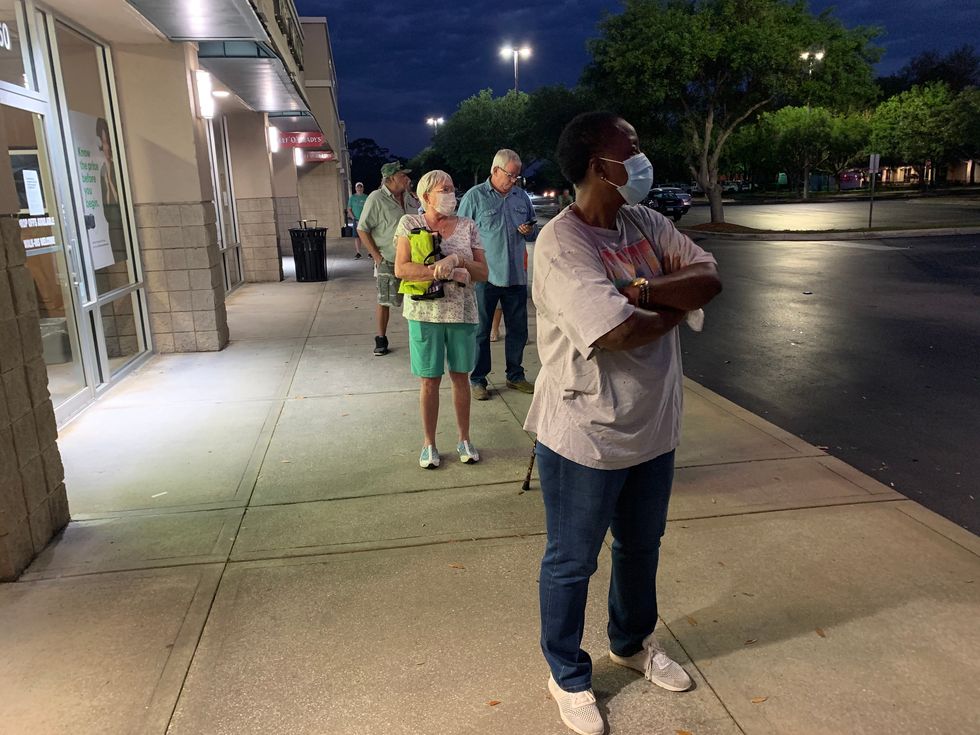By Tamika C.B. Zapolski, IUPUI and Ukamaka M. Oruche, IUPUI
As the COVID-19 pandemic swept across the U.S., the virus hit African Americans disproportionately hard. African Americans are still contracting the illness – and dying from it – at rates twice as high as would be expected based on their share of the population.
In Michigan, African Americans are only 14% of the population, but account for one-third of the state's COVID-19 cases and 40% of its deaths.
In some states the disparities are even more stark. Wisconsin and Missouri have infection and mortality rates three or more times greater than expected based on their share of the population.
Speculation has suggested these disproportions are due to several factors: African Americans are more likely to live in poor neighborhoods, work at riskier occupations, and have more underlying health conditions and limited access to health care. But similar inequities exist in African American communities with above-average wealth and health care access. Staggering rates of COVID-19 occurred in Prince George's County, Maryland – the nation's wealthiest African American enclave. Comparable white communities were relatively unaffected.
As experts in clinical psychology and psychiatric nursing, we know this elevated risk for African Americans is not uncommon. It is true regardless of income, education level, or health care access. And it is true for other things besides COVID-19. African American women are more than twice as likely to die from childbirth than white women. Even if the African American women were educated and wealthy, they were more likely to die from childbirth than uneducated and poor white women.
Racism: the root cause
An analysis by the National Academy of Sciences found African Americans receive poorer quality care than white patients across all medical interventions and routine health services – even when insurance status, income, age, co-morbid conditions, and symptom expression were equal. Experts point to racism as a root cause for these disparities. Indeed, the American Academy of Pediatrics has outlined how racism impacts health outcomes for African American children. We suggest the same is true for COVID-19 outcomes among African American adults.
Other barriers negatively impact the health of African Americans. That includes implicit bias – attitudes, thoughts, and feelings existing outside of conscious awareness – as patients and providers communicate with each other.
Implicit bias from a doctor or nurse affects the quality and quantity of information shared with the patient about health conditions and treatment plans. The worst case scenarios: when providers withhold critical information about a health condition; when they don't include the patient's voice during decision making about care; and when they don't refer the patient for further tests or specialty care. Implicit biases from health care workers can result in patients being less likely to understand their health conditions, which is necessary for patients to manage an illness effectively.
Averse interactions with physicians lead to long-lasting consequences for the patient, including unequal treatment and disparate health outcomes. And when it comes to ineffective patient-provider interactions, African Americans suffer the most.
Location, location, location
The location of hospitals, clinics, and other health care facilities are often a barrier to care. Transportation – or the lack of it – impacts the patient's ability to receive services. African American patients have noted the frustration when health care facilities are not close to their homes. To get there, many of them rely on public transportation. The result: missed or cancelled appointments, sometimes due to policies regarding late arrival times by patients.
Differences also exist between African American and white patients in the length of wait time for appointments and the ability to schedule follow-up appointments. This can result in delayed health care – which leads to poorer health outcomes for illnesses, including COVID-19.
Recommendations for addressing racism
Consumers who are well informed about their health and confident in managing their care have better outcomes virtually across the board: in HIV-AIDS, cancer, diabetes, cardiovascular disease, and mental health conditions such as schizophrenia.
That said, here are three recommendations to address racism and reduce racial disparities in health care services:
- Health care professionals need to become more aware of their implicit bias. Identify the problem, as the saying goes, and you're halfway to solving the problem. One way to become more aware: take the implicit bias test here.
- Doctors and nurses need to be attentive and collaborative when communicating with patients. Empower the patient by encouraging questions and letting them express opinions. When patients believe the providers are there to support them, they manage their illness better. They also have a better perception of quality care. Ultimately this leads to improved health outcomes.
- Hospitals, clinics, and doctor's offices should provide more flexibility in delivering services. Telehealth – when doctors and patients communicate online, instead of an in-person visit – should be one of those services. They should also restructure scheduling policies, emphasizing shorter wait times and more slack if patients are late.
Health inequity for African Americans is not a new phenomenon. COVID-19, however, shined a light on the problem. Racism is not isolated to health care services, and it remains pervasive throughout our society. But by taking the tangible steps outlined here, providers can begin to solve the problem.
Tamika C.B. Zapolski, Associate Professor of Pyschology, IUPUI and Ukamaka M. Oruche, Associate Professor & Director of Global Programs, IUPUI
This article is republished from The Conversation under a Creative Commons license. Read the original article.







